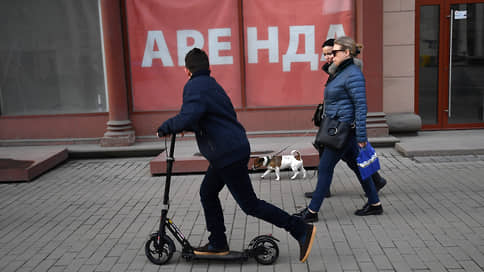The Supreme Court of the Russian Federation will decide whether the landlord’s taxes affect the amount of rent
[ad_1]

The Supreme Court of the Russian Federation (SC) will decide whether the landlord’s transition to a simplified taxation system can become a basis for reducing the rent. We are talking about reducing the cost of rent by the amount of VAT. The lower courts decided that the tenant has the right to deduct VAT, but the landlord’s objections interested the Supreme Court. There is no uniform practice on this issue. Lawyers also have different opinions: some see no reason to reduce the price of the contract, while others consider the reduction in fees to be fair.
The Supreme Court will consider two similar disputes about the grounds for reducing rent when the landlord changes the tax system. In 2010–2011, JSC Autonomous Heat and Power Company (ATK) began renting a number of facilities from the Maykop Heat Networks Municipal Unitary Enterprise “for the purpose of producing, transporting and selling heat energy to consumers.” The parties entered into two contracts for 15 years, agreeing that the amount of rent (1.33 million rubles and 2.1 million rubles) can be changed by mutual agreement, but only upward.
In 2017, an additional agreement was reached on a slight increase in fees. But since January 2018, the municipal unitary enterprise switched from the general to the simplified taxation system (STS), and in May 2018, ATK asked to reduce the rental price by the amount of VAT. The landlord refused, noting that by law he is not obliged to reduce the rent when switching to the simplified tax system. However, ATK still began to pay rent less by the amount of VAT. In December 2020, the municipal unitary enterprise demanded to repay the debt, the tenant did not respond and the dispute went to the courts.
The Arbitration Court of the Republic of Adygea rejected the claims of the municipal unitary enterprise for the recovery of underpaid 9.81 million rubles. and 1.66 million rubles. interest on them under both agreements. The court considered that since the lessor is no longer a VAT payer, then he has no grounds to collect the amount of tax as part of the rent. The appeal and cassation supported these decisions.
The municipal unitary enterprise appealed to the Supreme Court, citing the fact that the parties did not come to an agreement on changing the rental price, but the tenant arbitrarily reduced payments from January 1, 2018 to December 31, 2020. The transition to the simplified tax system cannot serve as a reason for changes in rent, according to the MUP. In addition, they emphasize that the contracts were concluded with ATK as the only participant in the open competition. Having taken part in it, the company agreed to the price of the lot. The cases were transferred to the economic board, and consideration is scheduled for October 17 and November 7.
Lawyers interviewed by Kommersant say that there is no uniform practice in such cases and the decision of the Supreme Court will be a precedent for rental disputes. If the lease is long-term, such disputes arise quite often, since over a long period one or the other party can switch to a special tax regime and most often this is the simplified tax system, explains managing partner of Averta Group Alexey Sharov.
Taxology partner Alexey Artyukh notes that the point of switching to the simplified tax system is the use of a more preferential regime, which allows reducing the tax burden on the company. Thus, the lawyer clarifies, when switching to the simplified tax system, the taxpayer pays only 6% of revenue (or according to another scheme – 15% of the difference between income and expenses) instead of the standard 20% VAT and 20% income tax.
At the same time, the consequences of the lessor’s transition to the simplified tax system turn out to be radically different for the parties to the agreement. The tenant seems to continue to pay the same rental price, but if previously he could save 20% of it (through a VAT tax deduction), now he is deprived of this opportunity, which is “equivalent to an increase in the contract price,” believes Sergey, senior partner of Pepelyaev Group Savseris. For the landlord, on the contrary, the 20% VAT that he previously paid to the budget becomes income, the lawyer adds.
According to Alexey Artyukh, if, under the terms of the contract, the fixed price contains VAT, when the landlord switches to the simplified tax system, the tenant must retain the opportunity to save this amount: either through a reduction in the rental price, or through the landlord issuing an invoice with VAT in order to obtain the right to deductions from the budget . Otherwise, “economic injustice arises” when “in violation of the spirit of the initial agreements, one side begins to enrich itself at the expense of the other,” notes Mr. Artyukh. Sergei Savseris agrees that “the parties must reconsider the financial terms of interaction and restore the balance of interests.”
But there are other opinions. The tenant finds himself “in conditions of a heavier tax burden,” admits Alexey Sharov, but still “does not have the right to unilaterally underestimate the amount of rent.” He takes the position that the price of the lease agreement, as its essential condition, can be reduced only by agreement of the parties.
At the same time, the conclusion of an agreement at a competition does not affect the possibility of changing the rent, says Sergei Savseris, noting that “the parties have already changed it in favor of the lessor, and due to the transition to the simplified tax system, the situation has changed again in his favor.” Alexey Artyukh agrees that “the form of concluding a contract has nothing to do with economics.”
[ad_2]
Source link





